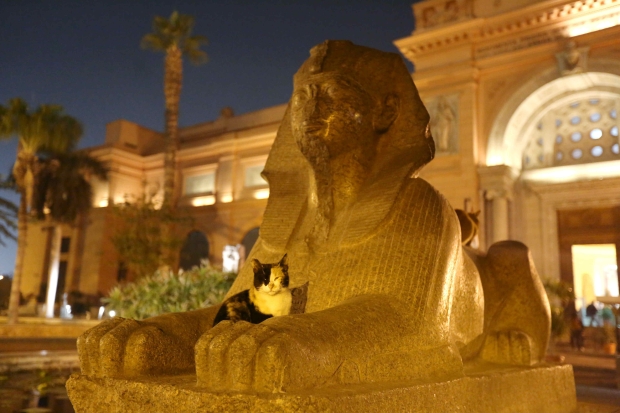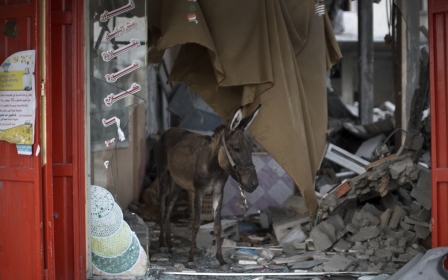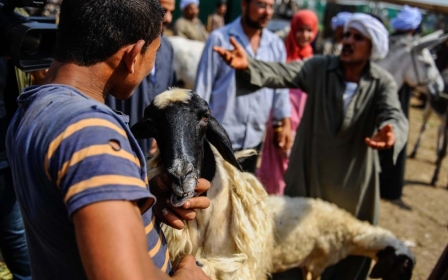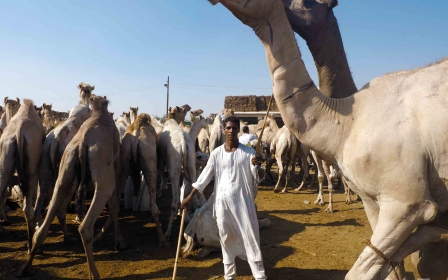Has Egypt just started exporting stray dogs and cats to South Korea?
For years Egypt has exported cotton, grain and natural gas. Now, it appears, the country will be exporting cats and dogs, too.
On Wednesday, the Egyptian agriculture ministry confirmed that it had recently licensed the export of 4,100 cats and dogs to a number of countries. The news has been met with grave concern by animal rights activists, who say they are worried that the creatures will be sent to countries where they may be eaten and mistreated.
In September and October, licenses to export 2,400 cats and 1,700 dogs from different breeds were granted, according to the General Authority for Veterinary Services (GAVS).
The GAVS said it was done in accordance with international regulations governing the exporting of animals, including making sure they are free from any diseases.
This is the first time Egypt has exported dogs and cats, according to Hamed Abdeldayem, an agriculture ministry spokesman.
The dogs and cats were mainly “taken from the streets” but have been vaccinated and given a medical certificate from the Animal Health Institute saying they are free from any disease, before being exported, Abdeldayem said.
Abdeldayem could not say which countries the animals were going to be exported to, but said there were no particular conditions in place to decide their destination.
Dog food?
Officials have not given specific reasons why the animals were now being exported, though Egypt has long complained of the number of stray dogs and cats in the country. Last month, a study reported that as many as 22 million stray dogs were on the loose in Egypt.
Though authorities have not disclosed the cats and dogs's destinations, many Egyptians have assumed they would be sent to countries with a poor animal rights records and a reputation for eating them.
On 9 October, Azer proposed solving the strays problem by “gathering them in one place in the desert, providing them with a healthy diet for one week, and then exporting them”.
A number of South Koreans have criticised Egypt for failing to export its stray dogs, instead letting them harm [people] in the streets
- MP Margaret Azer
According to Azer, “a number of South Koreans have criticised Egypt for failing to export its stray dogs, instead letting them harm [people] in the streets".
The MP said she believed the exports could boost the Egyptian economy and eradicate disease-ridden animals from streets, which she said have become “a burden on the Egyptian citizen”.
Around one million dogs are eaten in South Korea every year, though attitudes towards consumption of the meat long thought of as a delicacy are changing markedly.
On Thursday, South Korea's largest dog abattoir began to be dismantled and will be turned into a public park.
Societal dialogue
This week, the Egyptian parliament began a “societal dialogue” to discuss proposed means of dealing with the abundance of stray animals in Egyptian streets.
But the news of the exportations has sparked outrage amid animal rights campaigners.
"Your Excellency, President Abdel Fattah el-Sisi of Egypt, please show compassion for the Baladi [country] cats and dogs," one animal rights supporter tweeted. "Please do not allow these helpless innocents to be exported. To do so would be to send them to countries that brutally torture and consume them.
In our countries, we are still struggling to prove a human’s right to life. I guess it’s gonna take officials a very long time to understand what animal rights mean
- Youssef Hussein, Egyptian satirist
Mona Khalil, head of the Egyptian Society for Mercy to Animals, condemned Azer’s proposal as contrary to animal rights and Islamic teachings, and said the economy could be financed by other means.
“The GAVS is the first killer of animals in the streets,” she told DMC channel, lashing out at the animal authority’s policy of poisoning strays as a way of eliminating them.
The campaign has also been derided by commentators in the Egyptian media.
Youssef Hussein, an Egyptian satirist, took aim at the exportations in his weekly programme Joe Show, broadcast on the London-based Araby TV station.
“The sheer number of human rights violations in Egypt make [any discussion of animal rights] seem like a luxury, but respecting animal life is not different from respecting human rights,” Hussein said.
“In our countries, we are still struggling to prove a human’s right to life. I guess it’s gonna take officials a very long time to understand what animal rights mean.”
This article is available in French on Middle East Eye French edition.
New MEE newsletter: Jerusalem Dispatch
Sign up to get the latest insights and analysis on Israel-Palestine, alongside Turkey Unpacked and other MEE newsletters
Middle East Eye delivers independent and unrivalled coverage and analysis of the Middle East, North Africa and beyond. To learn more about republishing this content and the associated fees, please fill out this form. More about MEE can be found here.





